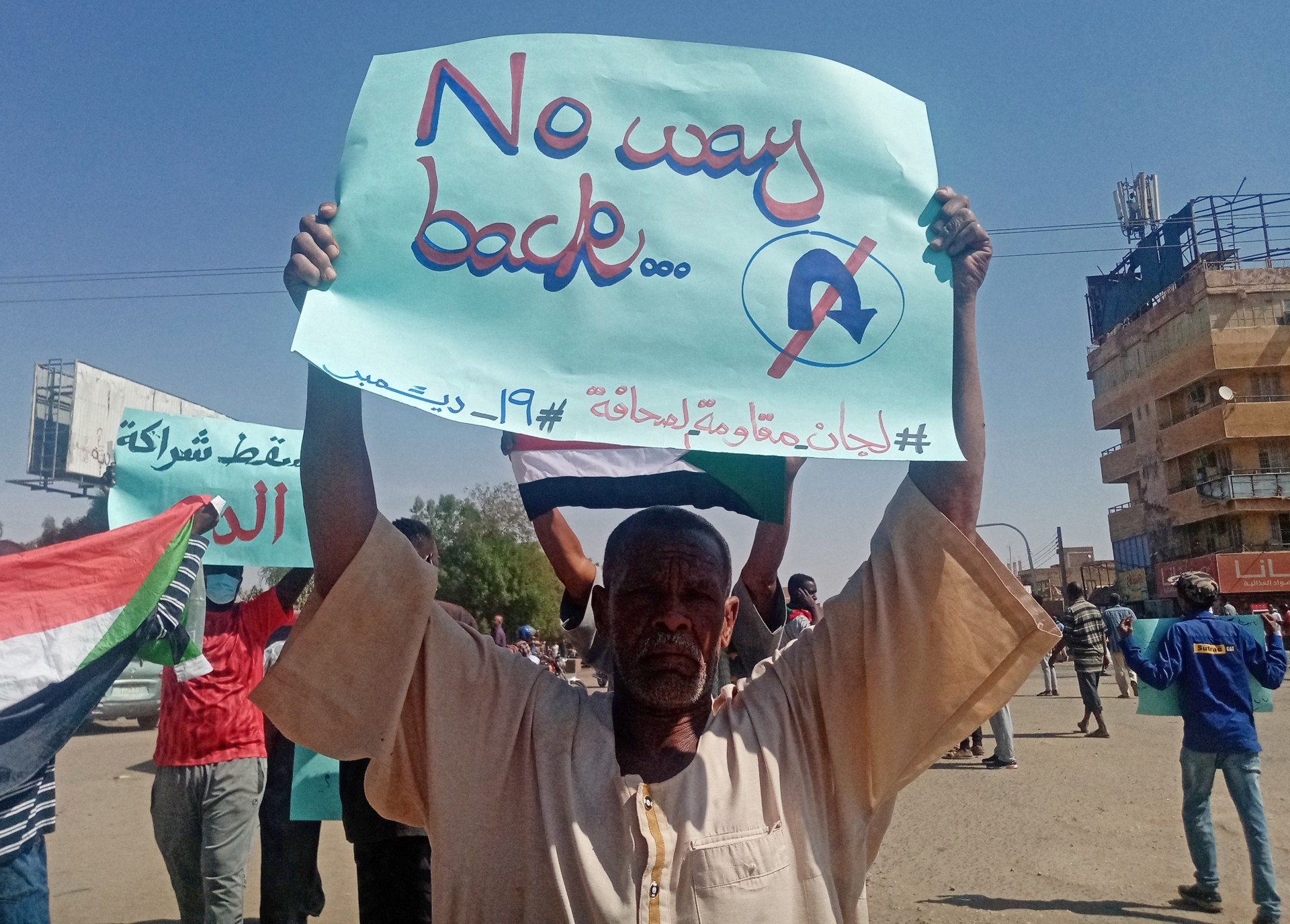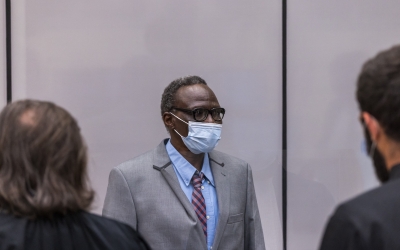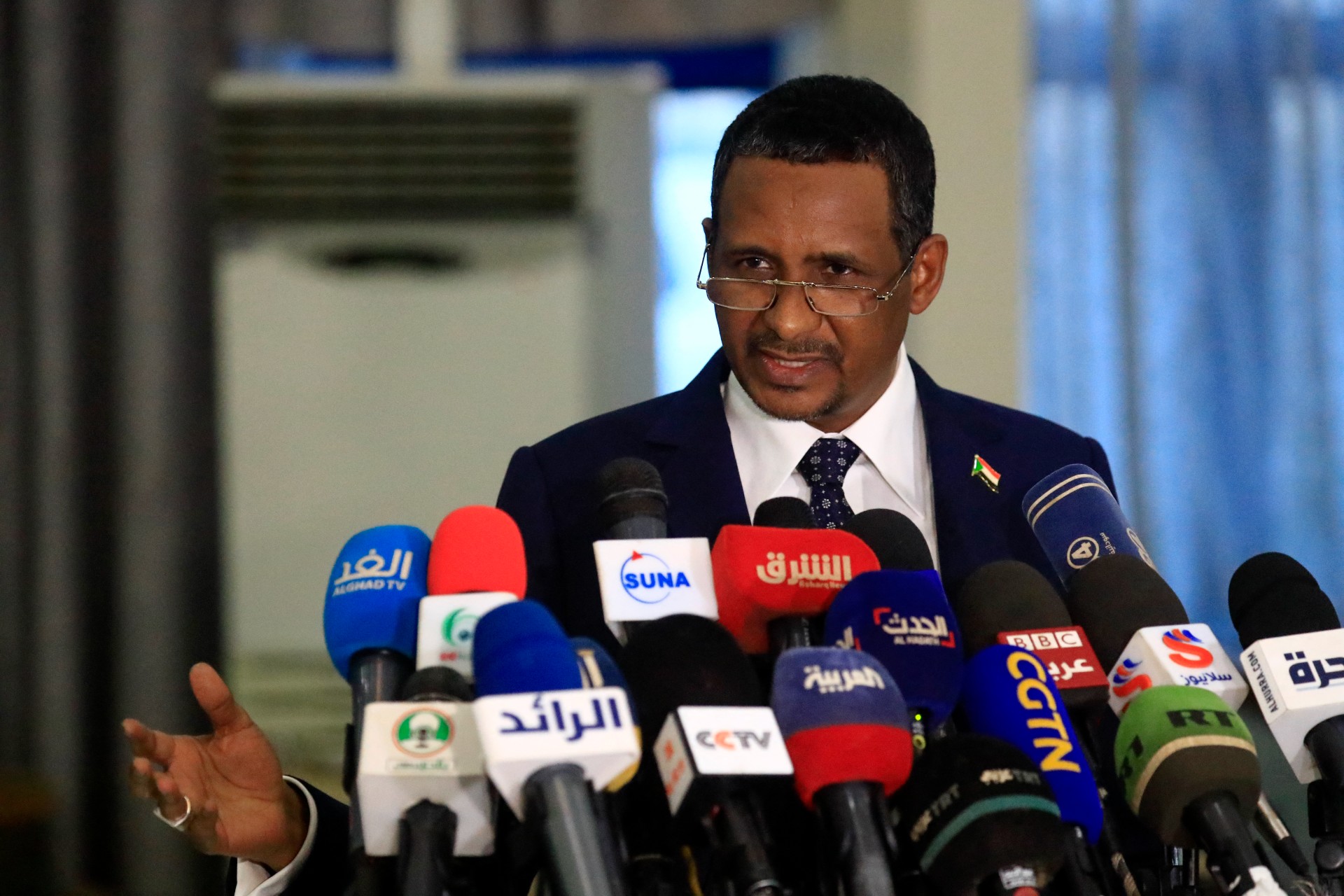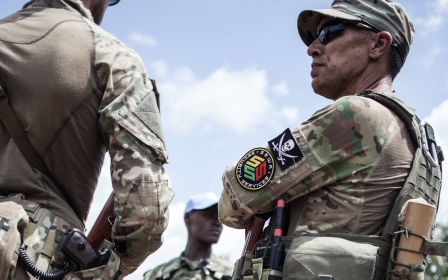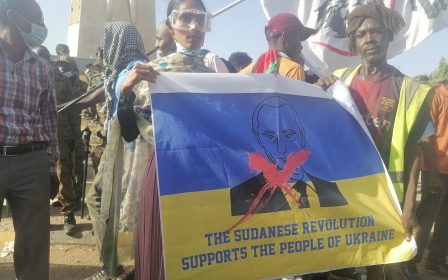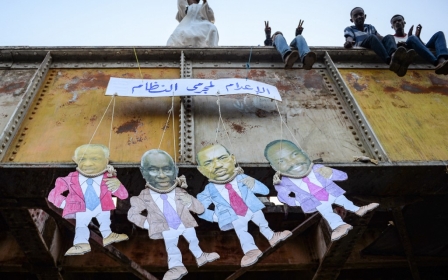Sudan's Bashir is in prison, but his officials are sweeping back into power
On 11 April 2019, Sara Abdelgalil was serving as the spokesperson for the Sudanese Professionals Association (SPA), an independent trade union campaigning for democratic change in Sudan.
The first-ever woman to hold the role, Abdelgalil was in London when she got a call telling her that Omar al-Bashir, who had ruled her home country for three decades, was no longer president.
It should have been a moment of great catharsis. The man whose intelligence and security services had tortured and killed friends and colleagues was gone. The man whose government had kept her living in exile in the UK for two decades and threatened her when she openly campaigned against it, was no more.
Abdelgalil was with her mother, and the two women cried together, sharing in the emotion of the moment. They both thought of her father, Ibrahim Hassan Abdelgalil, a professor of economics and minister in Sadiq al-Mahdi’s short-lived democratic government of the 1980s, who had died in 2018 in Khartoum, far away from his daughter.
But Abdelgalil, a pediatrician who works in Britain’s National Health Service, was not happy. She had the sense that Sudan’s journey to democracy had been interrupted, that it was a train that had been diverted en route to its final destination.
New MEE newsletter: Jerusalem Dispatch
Sign up to get the latest insights and analysis on Israel-Palestine, alongside Turkey Unpacked and other MEE newsletters
“There was a degree of happiness on that day,” Abdelgalil, a member of the Sudan Doctors Union, told Middle East Eye. “But there was also concern and anxiety.”
The revolution desired the ousting not just of Bashir, but the whole system his National Congress Party (NCP) presided over.
“We wanted it all to go away,” she said. “On that day, the NCP wanted to remove Bashir and then for everyone to go home. They realised, though, that the people of Sudan wanted more.
“It was not a balanced negotiation. They had the power, they had the guns. In spite of that, the people persisted.”
Three years and one coup later, Bashir is still in prison. His NCP remains banned. Yet two questions linger: Are Bashir’s people coming back? Did they ever go away?
Military power
The first and most obvious place to look is at the top of the government. General Abdel Fattah al-Burhan, head of the Sudanese military and the de facto head of state, was one of the military figures who told Bashir his time was up.
But Burhan had long been one of Bashir’s reliable lieutenants, both literally and politically.
As a military intelligence colonel coordinating army and militia attacks against civilians in West Darfur from 2003 to 2005, Burhan was, in the words of Africa Confidential editor Patrick Smith, “absolutely instrumental to the devastation caused in Darfur” by Bashir’s administration.
Hundreds of thousands are believed to have been killed in the violence, for which Bashir is wanted by the International Criminal Court.
Burhan went on to command the army’s ground forces before being made inspector general of the army in February 2019, just two months before Bashir was removed from power.
Alongside Burhan sits Mohamed Hamdan Dagolo, widely known as Hemeti, commander of the Rapid Support Forces (RSF) militia and the de facto deputy head of state.
Like Burhan, Hemeti is a man who has been able to increase his own power in the wake of Bashir’s removal, despite being a man who was made in the autocrat’s era.
As the leader of the infamous Janjaweed militias, which eventually morphed into the RSF, Hemeti is accused of overseeing widespread atrocities in Darfur.
Continuity
The continuity between the Bashir era and post-Bashir Sudan goes way beyond the men at the top, however.
Since the 25 October coup that toppled the then Prime Minister Abdalla Hamdok and established Burhan and Hemeti’s complete control over the country, prominent officials who were part of or affiliated with the NCP have been returning to positions of power.
Indeed, the pro-democracy movement believes the Islamist party, which ruled the country for so long, is one of the main forces behind the coup.
On Thursday, a number of Islamist leaders from the Bashir era, including the former head of the NCP Ibrahim Ghandour, were acquitted by a Sudanese court, which cited a lack of evidence.
In the aftermath, Ghandour voiced his support for the 25 October coup, which he said wasn’t a coup but a “corrective”.
The Islamist leader added that while Burhan had “made a mistake” when he signed a deal with four revolutionary leaders, the direction of the country was now improving.
Lacking a political constituency of his own, Burhan, once a card-carrying Islamist himself, is bringing back the old guard.
As activist Nada Ali put it: “Burhan has been filling key positions with remnants of the ousted Islamist fascist regime."
Sudan’s acting foreign minister, Ali al-Sadiq, served as an ambassador in a number of different countries and was a spokesperson for his ministry under Bashir.
Appointed just a month after the 25 October coup, Ahmed Mufaddal, the director of the general intelligence service, was a Bashir loyalist who served the NCP government as governor of South Kordofan state.
Burhan’s new acting labour minister, Suad al-Tayib Hassan, was Bashir’s director of the labour office, and Amal Saleh Saad, commerce minister, was previously a deputy minister.
Minister of Cabinet Affairs Osman Hussein was appointed by the former leader’s vice president.
Abdelaziz Fath al-Rahman Abdeen, appointed head of the judiciary on 25 November last year, used to be Bashir’s deputy chief justice. Hussain Yahia Jangol, appointed as governor of the central bank by Burhan, was chosen by Bashir for the same position.
Pro-democracy activists sent many more names to MEE in the course of reporting this article.
They said, too, that the work done by Sudan’s Empowerment Removal Committee to fight state-sponsored kleptocracy has been almost completely undone. This has included the reinstatement of hundreds of NCP-era public officials who had been removed from office by the civilian-led government for corruption.
'Democracy will happen'
Reflecting on the past three years from the hospital where she works in London, Abdelgalil said “justice has never been achieved”.
“There has been no reform to the judiciary, no reform to the security sector. The regime has blocked any effort to dismantle its gold-mining interests, its trade interests, and so on,” she said.
Abdelgalil believes that the 25 October coup panned out the way the military meant 11 April 2019 to pan out.
On that day, she said, Burhan and his allies had intended to remove Bashir and then get back to business as usual. The people’s desire for revolution meant that wasn’t possible.
The revolutionary movement was never allowed to make mistakes, Abdelgalil said, and when 25 October arrived, it was as if the movement was a patient recovering from a serious illness, only to then get Covid-19.
'The coup is a subtle return of the NCP regime'
- Sara Abdelgalil, activist
“The coup is a subtle return of the NCP regime,” she told MEE. “We are a toy in the hands of others: Egypt, the UAE, the European Union, the UK, the US, Russia.”
But in the end, she said, democracy will come to Sudan.
“It will happen. It could take years and the price, unfortunately, will be very high. I am a doctor and I see kids being killed. But there is a high level of awareness among the youth as to what they want,” she said.
Protests against the coup are being held weekly across the country, routinely met by bloody and deadly violence.
“The revolution is in every house - they are ordinary people asking for social justice, security, rights, but these things will interfere with the interests of the NCP,” she added.
Abdelgalil paused, thinking about what decades of fighting for a different Sudan have done to her and her family, and what 11 April really means to her.
“For me, I have lost all my youth abroad waiting for a democratic Sudan. My dreams are abolished. My father died dreaming of a democratic Sudan. It has been decades of dictatorship.”
Middle East Eye delivers independent and unrivalled coverage and analysis of the Middle East, North Africa and beyond. To learn more about republishing this content and the associated fees, please fill out this form. More about MEE can be found here.


